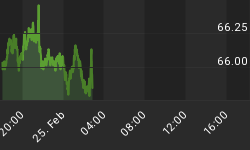“Failure is simply the opportunity to begin again, this time more intelligently” --Henry Ford
For many of us, getting the dreaded pink slip is generally a pretty awful and humiliating experience that can feel like a career low. In most cases, those feelings are triggered by an all-too-common human proclivity—a hypervigilant fear of the unknown. Suddenly, you find yourself in a quagmire: How will I pay my bills? What will I tell my family? How will my friends view me? Will my professional reputation ever recover?
If you constantly dread getting the boot, take heart. There’s growing evidence that far from being the end of your life, getting fired or laid off in many cases leads to positive outcomes in the long run.
A recent study by the Harvard Business Review has established that getting fired can actually be good for you. The study, co-authored by Elena Lytkina Botelho and Kim Rosenkboetter Powell, involved a survey of 2,600 executives and came up with some pretty interesting findings: 45 percent of the high-flying executives had been fired from a job or made at least one major mistake in their careers.
Despite these setbacks, 78 percent were not only able to find a new job but were able to work their way up the ladder to CEO level.
Rewarding Failure
Another amazing thing the study unearthed is that executives who had been fired (and handled it well) actually received more recommendations for new jobs by recruiting firms than those who had not faced the ax. To explain this seemingly contradictory discovery, the authors opine:
"Experienced hiring managers know that setbacks are inevitable and want to see how individuals have handled failure in the past. The riskiest hires are the ones who are untested by failure."
If that sounds like these executives are being rewarded for failing, it’s because they are. Apparently, some smart companies actively search for people who have been thoroughly chastened by failure to fill top positions.
Related: Online Shopping Just Got More Expensive
Sharfi Farhana, head of executive recruitment and c-suite talent management at IAC, helps her company find executives for leading brands such as Vimeo, Tinder, Match.com and others. She recently told CNBC Make It that a history of failure is a key quality that she looks for when hiring top personnel. Her philosophy?
"Failure is a key part of life," she explains. "It's not always about winning, right? If you're always winning, then great. But, you know, CEOs of the future need to really have gone through a struggle."
Overcoming the Fear of Failure
But fear of failing at their jobs or careers is not only confined to people in formal employment. For entrepreneurs, fear of failure can be even more acute because they are essentially risk takers and have to deal with so many unknowns. Many successful entrepreneurs will tell you that they became successful only after learning to embrace failure and use it as a learning experience.
Billionaire entrepreneur Mark Cuban is one such person who is well acquainted with failure. Cuban told ABC’s Shark Tank he quit or got fired from three straight jobs after graduating from Indiana University in 1981. He shares Henry Ford’s philosophy that failure is nothing more than a learning opportunity:
"One of my favorite sayings is, 'It doesn't matter how many times you fail, just have to be right once.' Then everybody can call you an overnight success. I've failed a company that sold powdered milk, I failed the jobs I've gotten fired from. And all those were learning experiences."
The great American inventor, Thomas Edison, famously quipped: "I didn't fail 1,000 times. The light bulb was an invention with 1,000 steps."
Thanks to his persistence and masterful control of his fear of failure, Edison not only invented the incandescent light bulb but also received a record 1093 patents (singly or jointly) for inventions like the phonograph, movie camera, carbon microphone, vacuum diode and dozens more.
If you have experienced a career blow in the form of being fired, Botelho, Powell and Wright advice that taking ownership of your actions, relying on your experience and expertise and leaning on your professional network are key to bouncing back and finding success again.
By Alex Kimani for Safehaven.com
More Top Reads From Safehaven.com:
















